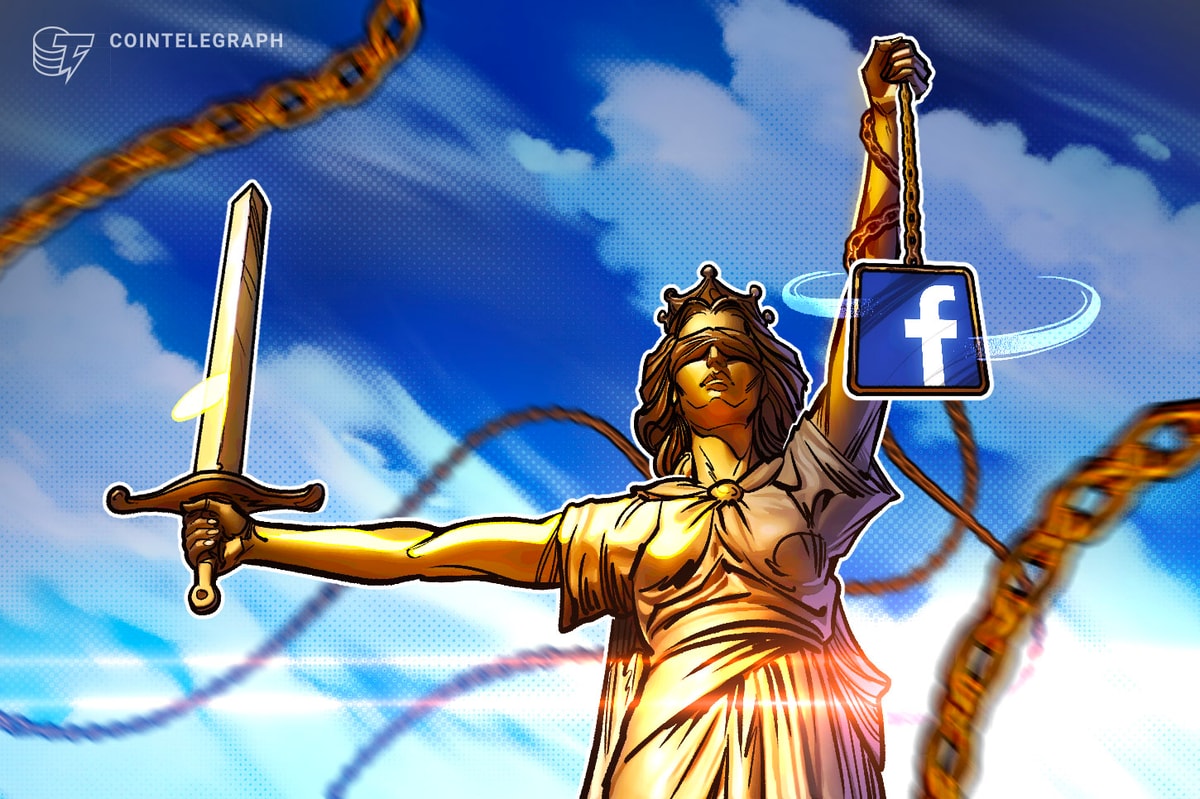The internet — arguably the greatest invention in human history — has gone awry. We can all feel it. It is harder than ever to tell if we are engaging

The internet — arguably the greatest invention in human history — has gone awry. We can all feel it. It is harder than ever to tell if we are engaging with friends or foes (or bots), we know we are being constantly surveilled in the name of better ad conversion, and we live in constant fear of clicking something and being defrauded.
The failures of the internet largely stem from the inability of large tech monopolies — particularly Google and Facebook — to verify and protect our identities. Why don’t they?
The answer is that they have no incentive to do so. In fact, the status quo suits them, thanks to Section 230 of the Communications Decency Act, passed by the United States Congress in 1996.
Related: Nodes are going to dethrone tech giants — from Apple to Google
But things may be about to change. This term, the Supreme Court will hear Gonzalez v. Google, a case that has the potential to reshape or even eliminate Section 230. It is hard to envision a scenario where it wouldn’t kill the social media platforms we use today. That would present a golden opportunity for blockchain technology to replace them.
How did we get here?
A key facilitator of the internet’s early development, Section 230 states that web platforms are not legally liable for content posted by their users. As a result, social media networks like Facebook and Twitter are free to publish (and profit from) anything their users post.
The plaintiff in the case now before the court believes internet platforms bear responsibility for the death of his daughter, who was killed by Islamic State-affiliated attackers in a Paris restaurant in 2015. He believes algorithms developed by YouTube and its parent company Google “recommended ISIS videos to users,” thereby driving the terrorist organization’s recruitment and ultimately facilitating the Paris attack.
Section 230 gives YouTube a lot of cover. If defamatory, or in the above case, violent content is posted by a user, the platform can serve that content to many consumers before any action is taken. In the process of determining if the content violates the law or the platform’s terms, a lot of damage can be done. But Section 230 shields the platform.
Related: Crypto is breaking the Google-Amazon-Apple monopoly on user data
Imagine a YouTube after Section 230 is struck down. Does it have to put the 500 hours of content that are uploaded every minute into a review queue before any other human is allowed to watch it? That wouldn’t scale and would remove a lot of the attractive immediacy of the content on the site. Or would they just let the content get published as it is now but assume legal liability for every copyright infringement, incitement to violence or defamatory word uttered in one of its billions of videos?
Once you pull the Section 230 thread, platforms like YouTube start to unravel quickly.
Global implications for the future of social media
The case is focused on a U.S. law, but the issues it raises are global. Other countries are also grappling with how best to regulate internet platforms, particularly social media. France recently ordered manufacturers to install easily accessible parental controls in all computers and devices and outlawed the collection of minors’ data for commercial purposes. In the United Kingdom, Instagram’s algorithm was officially found to be a contributor to the suicide of a teenage girl.
Then there are the world’s authoritarian regimes, whose governments are intensifying censorship and manipulation efforts by leveraging armies of trolls and bots to sow disinformation and mistrust. The lack of any workable form of ID verification for the vast majority of social media accounts makes this situation not just possible but inevitable.
And the beneficiaries of an economy without Section 230 may not be whom you’d expect. Many more individuals will bring suits against the major tech platforms. In a world where social media could be held legally liable for content posted on their platforms, armies of editors and content moderators would need to be assembled to review every image or word posted on their sites. Considering the volume of content that has been posted on social media in recent decades, the task seems almost impossible and would likely be a win for traditional media organizations.
Looking out a little further, Section 230’s demise would completely upend the business models that have driven the growth of social media. Platforms would suddenly be liable for an almost limitless supply of user-made content while ever-stronger privacy laws squeeze their ability to collect massive amounts of user data. It will require a total re-engineering of the social media concept.
Many misunderstand platforms like Twitter and Facebook. They think the software they use to log in to those platforms, post content, and see content from their network is the product. It is not. The moderation is the product. And if the Supreme Court overturns Section 230, that…
cointelegraph.com
